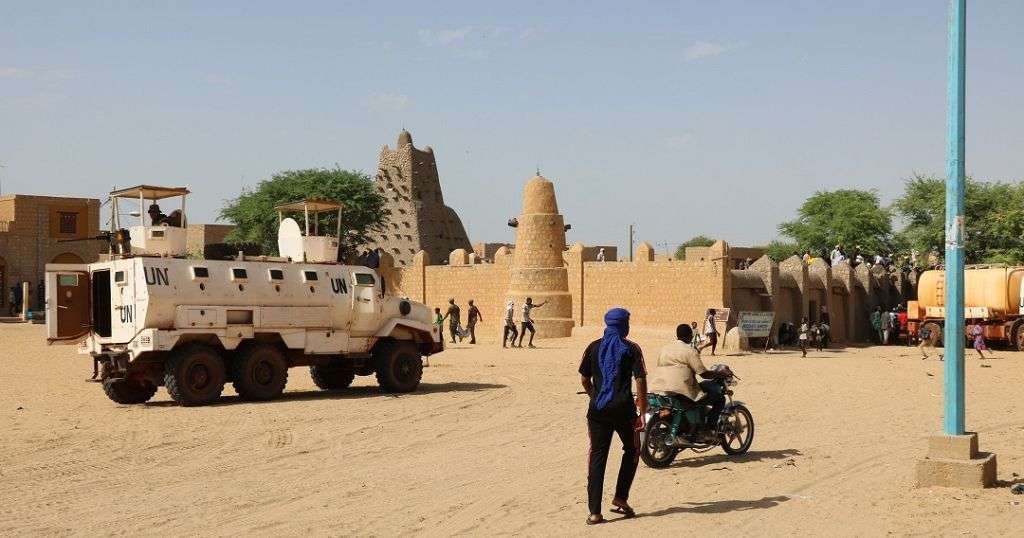Bamako, Mali – (African Boulevard News) – The UN peacekeeping mission in Mali, known as MINUSMA, is entering a new phase of its pullout from the country’s northern region amidst escalating violence. As the withdrawal from the strategic base in Kidal approaches, concerns are growing over the impact this may have on the stability of the region.
The decision to withdraw MINUSMA forces follows a Security Council resolution earlier this year, which called for a gradual reduction of peacekeepers in Mali. However, the intensifying fighting and the resurgence of jihadist groups have raised concerns about the timing and feasibility of the withdrawal.
“The situation in northern Mali remains fragile, with armed groups vying for control and targeting both civilians and security forces,” warns Ahmed Sidi, a security analyst based in Bamako. “The withdrawal of MINUSMA forces could leave a security vacuum and potentially exacerbate the conflict.”
MINUSMA, established in 2013, has been instrumental in maintaining peace and security in Mali. Its presence in the north has curbed the expansion of jihadist groups and created a space for dialogue and reconciliation. However, the recent upsurge in violence has strained the mission’s capacity to fulfill its mandate.
As the pullout advances, the Malian government and international partners are increasingly reliant on the national security forces to maintain stability in the north. However, the Malian army has been criticized for its lack of training, equipment, and coordination, which have hindered its effectiveness in countering the Islamist insurgency.
“The Malian security forces need significant support and investment to fill the void left by MINUSMA’s departure,” states Mariam Dembélé, a researcher at the Institute for Security Studies. “Without adequate training and resources, they may struggle to contain the violence, protect civilian populations, and prevent the resurgence of jihadist groups.”
The withdrawal of MINUSMA comes at a time when Mali is also grappling with political instability and social unrest. The coup in May 2021 and the subsequent transitional government have faced numerous challenges in restoring stability and addressing the root causes of the conflict.
“The withdrawal of MINUSMA should not be seen as the end of international engagement in Mali. On the contrary, it should serve as a wake-up call for the international community to provide sustained support, both financially and politically, to ensure long-term peace and development in the country,” emphasizes Fatoumata Cissé, a regional expert.
As the pullout from Kidal draws nearer, concerns over the potential consequences are mounting. It is crucial for the Malian government, the United Nations, and international partners to work together to address the security vacuum, strengthen the capacity of the national security forces, and encourage inclusive dialogue and reconciliation.
Ensuring a smooth transition and sustainable peace in northern Mali requires a comprehensive approach that tackles the underlying socio-economic factors driving the conflict. Only through a concerted effort can Mali overcome the challenges and prevent the resurgence of violence that has plagued the region for years.

